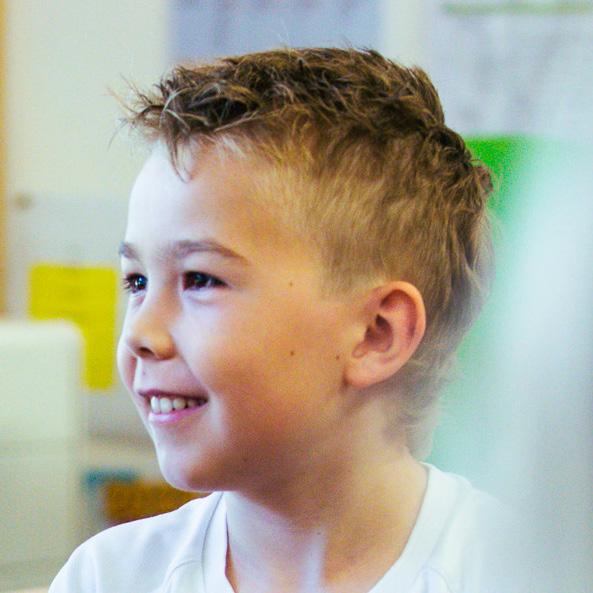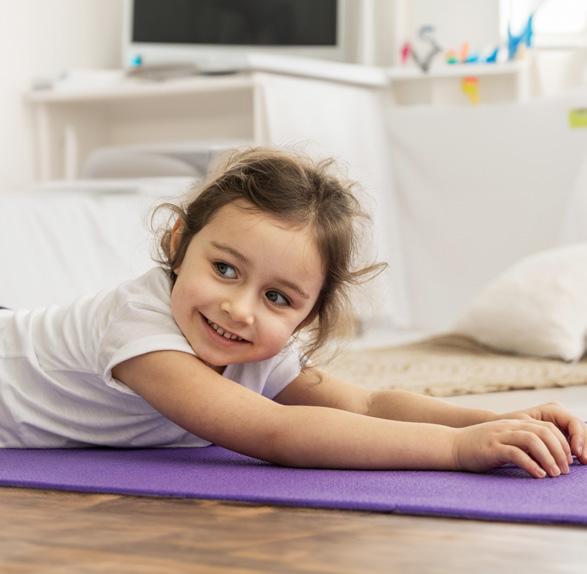




The Junior School follows a one-week timetable with a topic-based curriculum. Subject specific learning is, in the main, approached through the lens of the topic.
In this booklet you will find a summary of the main subjects covered in H Group (Year 2) and the amount of time dedicated to them each week. The class teacher is the main lead for the subject except for those subjects which are led by specialist teachers, detailed below.
All topics include experiential learning with a field trip to support the class-based learning. This allows the students to fully immerse themselves in the topics. Our topics begin by questioning “What do we know and what do we want to know?’. While core skills are taught throughout each topic, there is a degree of fluidity as the skills are built around the students’ interests.
Autumn term: Victorians
This topic takes us on a fascinating historical and geographical learning journey through the Victorian era, taking in some key people and events along the way. In this topic, students learn about significant changes during Queen Victoria’s reign and their wider impact. The overarching focus on what life was like for Victorian students helps us to make comparisons and contrasts between the past and present.
Spring Term: Great Explorers
In this topic, we will learn about the exciting quests of a variety of significant explorers from around the world. With a focus both locally and internationally, students uncover the adventurous spirit of exploration, comparing the figures’ way of life then as compared to now. This engaging approach aims to cultivate curiosity and a passion for learning in our students.
Summer Term: Africa
This topic is a dynamic exploration of continents and the captivating diversity of Africa. Students engage in map and compass skills, unraveling the migratory journey of swallows from the UK to Africa, while discovering African landmarks. Throughout this topic, students delve into the habitats of African animals, creating of a fact file throughout their research. We consider the rich tapestry of African history, spotlighting influential figures such as Nelson Mandela and Wangari Maathai.
Subjects over each week
The graphic on the opposite page represents a typical week in the Year 2 curriculum. However, we adapt and change daily depending on the needs to our students so these timings can occasionally be flexible.

Marcia Bonanni
Minimum of 5 hours
Phonics is integrated into both reading and writing to reinforce key literacy skills. Over a two-week period, we explore diverse texts of fiction, non-fiction, or poetry; these may link to our topic work and enhance listening skills and allow students to practice prediction, inference, and summarising techniques. Our focus throughout English extends beyond comprehension to vocabulary enrichment, grammar, punctuation, and spelling, ensuring a comprehensive approach to language development. We continue to refine handwriting skills as an integral part of the writing process.

Marcia Bonanni
Minimum of 1 hour 30 minutes
The phonics curriculum is designed to build upon foundational learning in the early years and Year 1 (J Group). Students revisit and reinforce their understanding of phase 2, 3, and 4 phonemes, and then learn the alternative sounds introduced in phase 5. Through continuous blending and segmenting of words, we engage in discussions about the relationship between the phonemes and graphemes in each word. Additionally, our focus on tricky words enhances our students' writing skills and phonics groups are adapted to meet the student’s needs.

Marcia Bonanni
Minimum of 5 hours
Using the White Rose scheme, H Group covers a range of mathematical concepts. We ensure a thorough exploration of a diverse range of topics to foster fluency and mastery. From numbers to 100, addition and subtraction, multiplication, and division, to dimensions such as length, height, mass, capacity, and temperature, our students engage with a comprehensive set of mathematical concepts. Additionally, we delve into fractions, time, position and direction, statistics, and problem-solving, providing a well-rounded foundation for mathematical proficiency and confidence in real-world applications.


Marcia Bonanni
Minimum of 1 hour
Science lessons allow students to build upon their learning from Year 1. Through hands-on experiments and observations, children develop a deeper understanding of the natural world. Topics include plants, animals (including humans), living things and their habitats and everyday materials. Critical thinking and enquiry skills are encouraged as students engage with hands-on scientific principles, fostering a curiosity-driven approach.
Marcia Bonanni
1 hour
In computing, H Group follow the Switched-on Computing program. The curriculum covers: We are astronauts (Programming in Scratch Jr); We are games testers (working out the rules for games); We are photographers (taking, selecting and editing digital images); We are researchers (researching a topic safely); We are animators (creating a stop motion animation) and We are zoologists (collecting data about bugs). We also utilise Purple Mash.
Marcia Bonanni
Minimum of 1 hour
In H Group, our humanities curriculum is a dynamic blend of geography and history, engaging students in a comprehensive exploration of the world around them. Through topic work, children develop an awareness of the past, examining chronology, discussing changes within and beyond living memory, and delving into the lives of significant historical figures. We extend our geographical understanding to include the UK, continents, and oceans, employing atlases, map skills, and compass work.



Marcia Bonanni
Minimum of 1 hr
Throughout their study of art and design technology, H Group students creatively express ideas using materials linked to our topics, experimenting with paint, clay, and drawing. The emphasis on patterns, textures, and forms guides students in designing and then evaluating their artwork. We discuss a diverse range of artists linked to each topic studied. Outside of the classroom, outdoor exploration includes environmental art and may link into Forest School lessons. In design and technology, there is a focus on levers and sliders. This work involves hands-on design, production, and evaluation.
Marcia
Bonanni
1 hour
PSHE (Personal, Social, and Health Education) prioritises the children's holistic wellbeing by covering essential topics such as positivity and good mental health, instilling the importance of safety, and guiding them in goal setting for a bright future. Our RSHE (Relationships, Sex, and Health Education) curriculum addresses coping mechanisms for change, cultivating healthy and happy friendships, exploring similarities and differences, fostering a sense of caring and responsibility, and understanding the dynamics of families and relationships.
Edel Davies
30 minutes
Through games, songs, mime, dance, and play, students in H Group learn key French vocabulary, linguistic structures, and grammar. Classroom routines help students to consistently revisit and build upon previously learned language. Through a variety of engaging situational topics, students are exposed to grammatical concepts such as indefinite articles to express noun, gender, quantity, adjectival placement, adverbs, and relative clauses. Throughout the year, the focus is on understanding aural input and oral output.




Martin Goodchild
2 x 30 minutes
Within their music lessons, H Group students work with specialist teachers to explore long and short sounds, high and low sounds, fast and slow, and varying musical textures. Students continue to explore what different instruments sound like, tempo and dynamics and how we combine different sounds and instruments to produce exciting and emotional music as an ensemble.
Mark Day
2 x 30 minutes
The focus of PE lessons in H Group is fundamental skill development. This is achieved through various activities including fitness, yoga, creative dance, gymnastics, and mini athletics. Students will develop individual skills in different sports or exercises which lead to cooperative play. Throughout the course of the year, H Group students learn movement skills relevant to games, including running, stopping, jumping, chasing, dodging, and skipping. They will also explore basic body movements and actions using different parts of their bodies and will also express feelings, moods, and ideas in response to different types of music.
Jenny White
45 minutes + changing time
During swimming lessons, specialist teachers work with students to build stamina over increasing distances up to a distance of 25m (the full length of our pool). Teachers work with students to secure basic techniques in all four strokes over distance and develop their aquatic skills including sitting dives and underwater swimming. Throughout their time at the pool, students will learn how to perform torpedo rolls and use mushroom floats to support their learning of each stroke. Students will also attempt to hold an inverted handstand and can tread water for 15secs with their head out of the water. Teachers work with students so that they are able to travel 25m (front or back) with ease and swim 10m in breaststroke or 5m by kicking only, with aid.
Lydia Somerville
Minimum of 1 hour 30 minutes
Forest School for H Group learners fosters curiosity, expanding awareness of the outside world. Tools like loppers and secateurs are introduced for simple making activities. The children are encouraged to look closer, recognising features of plants and animals, often linked into their scientific studies. Throughout the year, students take notice the web of life and nature’s interdependence, and why things live where they live. Students question “What do things need to live?”. Clove hitch is also introduced for making things such as swings, ladders, and tripods. The children also learn how to look after other people – keeping each other safe in our play.
Forest School at St Chris is a child centered, inspirational process that gives our young learners opportunities to challenge themselves, develop confidence and increase their self esteem through hands on learning experiences in a natural environment. Sessions are based on a fundamental respect for students and for their capacity to instigate, explore and maintain curiosity in the world around them. Most importantly, our students develop a deep and meaningful connection to the natural world and understand their place in it.

The school has an inclusive nature and a desire to maximise the potential of each child.
Parents' Survey